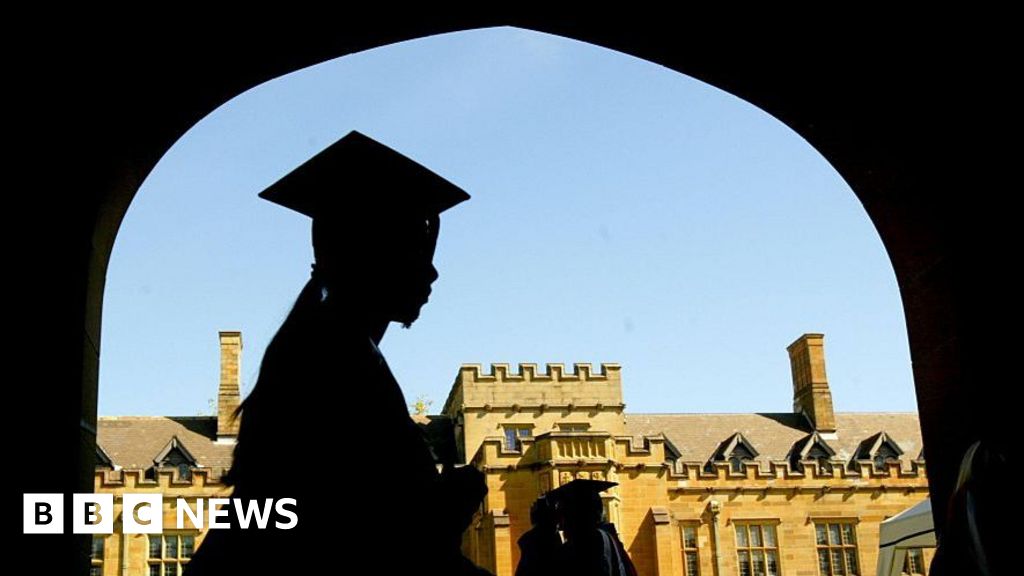Though some universities have expressed support at the bill’s apparent demise, they also say it extends the uncertainty surrounding the industry – which is worth about A$50bn (£25.7bn, $32.7bn) to the economy.
Luke Sheehy, head of Universities Australia, told the BBC the news brought “no sense of relief” for him.
“I just knew that we would be looking at international students [used] as cannon fodder in a phoney war on migration right through to the election now,” said Mr Sheehy, whose organisation advocates for 39 universities.
The cap proposed limiting new enrolments at 270,000 for 2025 – a significant cut on the number in 2024. It had been due to come into effect in just six weeks.
Some universities have made job cuts and rejected student applications in anticipation of the new laws, and the BBC was told foreign students were already choosing to study elsewhere as a result of the reduced confidence in the sector.
The legislation, currently before the Senate, has not been formally withdrawn by Prime Minister Anthony Albanese’s Labor government but it cannot pass without the support of the main opposition Liberal-National coalition or the Greens, who also oppose it.
Leader of the Opposition Peter Dutton called the bill “a dog’s breakfast” and vowed to introduce “deeper cuts” if he wins the upcoming election, due by May.
The Greens, on the other hand, described the bill “dog whistling that shamefully scapegoated international students for the housing crisis they did not cause”.
The government has accused Mr Dutton of hypocrisy, arguing he has often talked “tough” on cutting immigration to the country, which has reached record levels in recent years.
The expected failure of the bill would mean an existing visa policy, which has been widely accused of exacerbating problems by funnelling most international students to a select few city-based universities, will remain in place.
The Group of Eight (Go8) – a body which represents Australia’s top ranked universities – said the bill would have hurt students and staff and that common sense had prevailed.
But the industry has been left scrambling again, with only a few months left until the 2025 academic year begins. Observers say some universities could now receive a spike in students when they had a expected a cut, and others – predominantly in regional locations – will no longer expect as many, putting them under greater financial pressure.
“The most devastating part of this discussion is that we still don’t have a resolution,” Mr Sheehy said.
“We’re nowhere closer to providing the certainty, stability and growth the government promised us all those many months ago when they proposed caps.”

